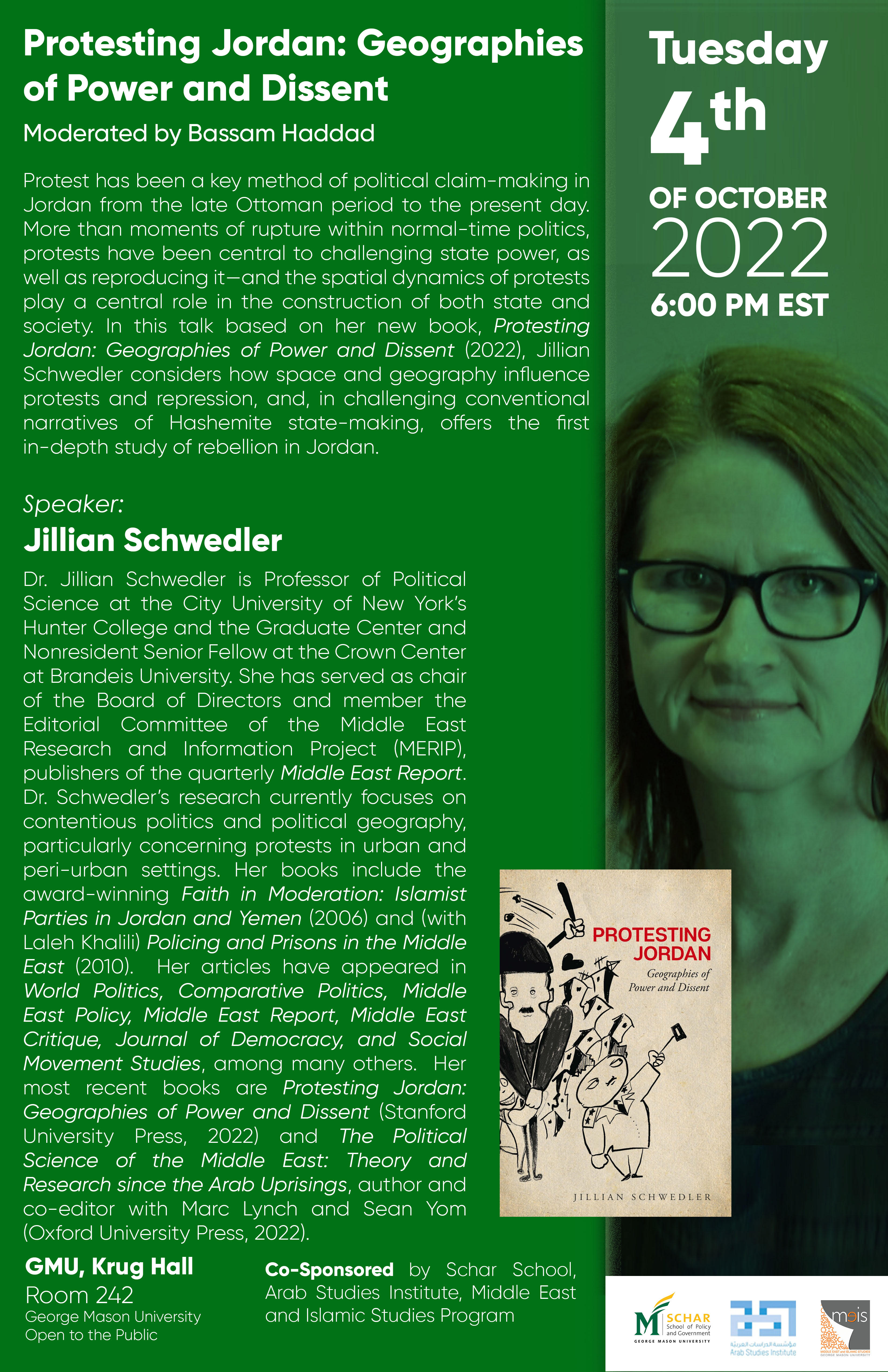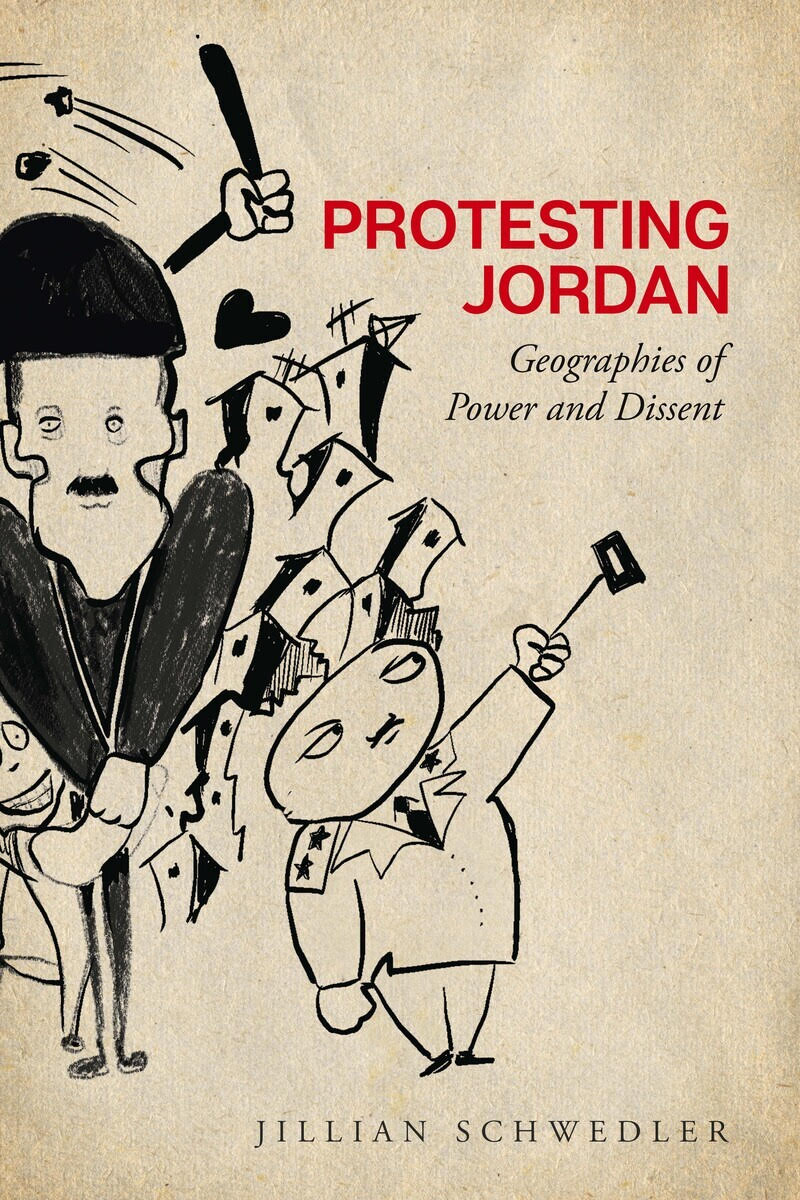George Mason University Schar School of Policy and Government Presents
Protesting Jordan:
Geographies of Power and Dissent
with Jillian Schwedler
Moderated by Bassam Haddad
Protest has been a key method of political claim-making in Jordan from the late Ottoman period to the present day. More than moments of rupture within normal-time politics, protests have been central to challenging state power, as well as reproducing it—and the spatial dynamics of protests play a central role in the construction of both state and society. In this talk based on her new book, Protesting Jordan: Geographies of Power and Dissent (2022), Jillian Schwedler considers how space and geography influence protests and repression, and, in challenging conventional narratives of Hashemite state-making, offers the first in-depth study of rebellion in Jordan.
Speaker
Dr. Jillian Schwedler is Professor of Political Science at the City University of New York’s Hunter College and the Graduate Center and Nonresident Senior Fellow at the Crown Center at Brandeis University. She has served as chair of the Board of Directors and member the Editorial Committee of the Middle East Research and Information Project (MERIP), publishers of the quarterly Middle East Report. Dr. Schwedler’s research currently focuses on contentious politics and political geography, particularly concerning protests in urban and peri-urban settings. Her books include the award-winning Faith in Moderation: Islamist Parties in Jordan and Yemen (2006) and (with Laleh Khalili) Policing and Prisons in the Middle East (2010). Her articles have appeared in World Politics, Comparative Politics, Middle East Policy, Middle East Report, Middle East Critique, Journal of Democracy, and Social Movement Studies, among many others. Her most recent books are Protesting Jordan: Geographies of Power and Dissent (Stanford University Press, 2022) and The Political Science of the Middle East: Theory and Research since the Arab Uprisings, author and co-editor with Marc Lynch and Sean Yom (Oxford University Press, 2022).
Moderator
Bassam Haddad is Director of the Middle East and Islamic Studies Program and Associate Professor at the Schar School of Policy and Government at George Mason University. He is the author of Business Networks in Syria: The Political Economy of Authoritarian Resilience (Stanford University Press, 2011) and co-editor of A Critical Political Economy of the Middle East (Stanford University Press, 2021). Bassam is Co-Founder/Editor of Jadaliyya Ezine and Executive Director of the Arab Studies Institute. He serves as Founding Editor of the Arab Studies Journal and the Knowledge Production Project. He is co-producer/director of the award-winning documentary film, About Baghdad, and director of the acclaimed series Arabs and Terrorism. Bassam serves on the Board of the Arab Council for the Social Sciences and is Executive Producer of Status Audio Magazine and Director of the Middle East Studies Pedagogy Initiative (MESPI). He received MESA's Jere L. Bacharach Service Award in 2017 for his service to the profession. Currently, Bassam is working on his second Syria book titled Understanding the Syrian Tragedy: Regime, Opposition, Outsiders (forthcoming, Stanford University Press).

